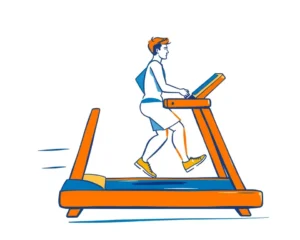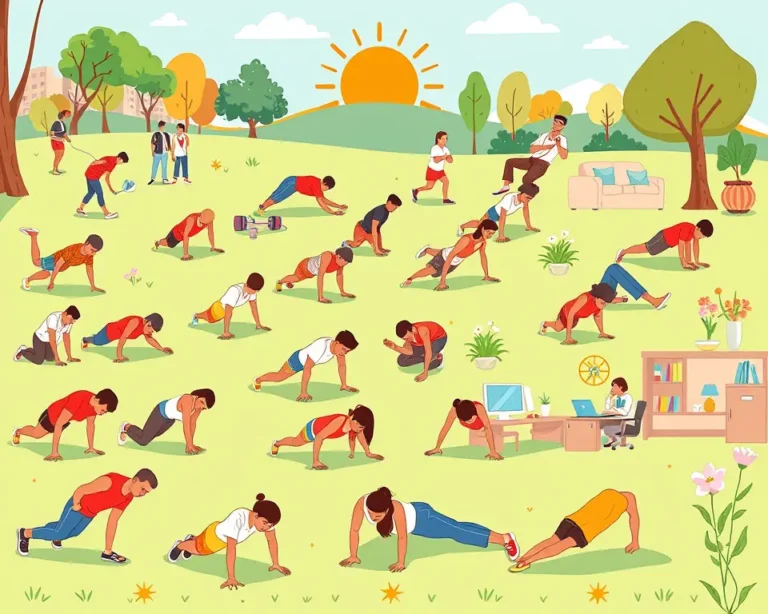Across the nation, people are dropping and giving… well, however many push-ups their daily target dictates. The Push-Up Challenge, a fitness-based initiative designed to raise awareness and funds for mental health, is gaining massive traction. This isn’t just about physical fitness; it’s a nationwide movement to break down stigma, promote well-being, and connect communities through a shared goal.
What is the Push-Up Challenge?
The Push-Up Challenge is more than just a test of physical endurance. It’s a unique and engaging way to:
- Raise awareness about mental health: Participants learn daily facts about mental health as they track their progress.
- Encourage positive mental health practices: Exercise is a proven method for improving mood and reducing stress.
- Build community: The challenge connects individuals and teams, fostering a supportive environment.
- Fundraise for mental health organizations: Participants can collect donations to support vital services.
The challenge typically involves completing a set number of push-ups over a period of days, often with a specific target each day. The number of push-ups often represents a significant statistic related to mental health, such as the number of lives lost to suicide in a given year. For example, in Australia, participants completed 3,214 push-ups over 23 days, representing the 3,214 lives lost to suicide in Australia in 2023. In Canada, one challenge saw participants aiming for 2,000 push-ups to represent the 20% of Canadians who experience mental illness each year.
Origins and Global Impact
The Push-Up Challenge originated in Australia in 2017 and quickly gained popularity, spreading to other countries, including Canada. Mental health organizations like the Canadian Mental Health Association (CMHA) have partnered to bring the challenge to their communities, adapting it to reflect local statistics and needs.
How to Participate
One of the key strengths of the Push-Up Challenge is its accessibility. People of all ages and fitness levels can participate. Here’s how:
- Register: Sign up as an individual or as part of a team on the challenge website.
- Set a Goal: While the standard challenge involves a specific number of push-ups, participants can modify the exercises to suit their abilities.
- Track Progress: Use the dedicated app to record daily push-ups, learn mental health facts, and track fundraising efforts.
- Engage with the Community: Share progress on social media, connect with teammates, and encourage others to join.
- Fundraise (Optional): Collect donations to support mental health organizations.
Modifications and Alternatives
Recognizing that not everyone can perform traditional push-ups, the challenge encourages modifications and alternative exercises. These include:
- Knee Push-Ups: Performing push-ups with knees on the ground reduces the amount of weight being lifted.
- Wall Push-Ups: Standing and pushing against a wall is an even gentler variation.
- Sit-Ups or Crunches: These exercises target the abdominal muscles and provide a good alternative for those with upper body limitations.
- Squats: A lower body exercise that works the legs and glutes.
- Tailored Exercises: Participants can choose any exercise that suits their needs and abilities.
The flexibility of the challenge ensures that everyone can participate, regardless of their fitness level or physical limitations.
The Mental Health Benefits of Exercise
The Push-Up Challenge isn’t just about physical fitness; it’s deeply rooted in the understanding that exercise has significant mental health benefits. Studies have consistently shown that regular physical activity can:
- Reduce Stress: Exercise helps lower levels of stress hormones like cortisol.
- Improve Mood: Physical activity stimulates the release of endorphins, which have mood-boosting effects.
- Reduce Symptoms of Anxiety and Depression: Exercise can be as effective as medication in treating mild to moderate depression and anxiety.
- Boost Brain Chemicals: Exercise increases the levels of serotonin, dopamine, and norepinephrine, neurotransmitters that play a crucial role in regulating mood, sleep, and appetite.
- Improve Sleep Quality: Regular exercise can help regulate sleep patterns and improve the quality of sleep.
- Increase Self-Esteem: Achieving fitness goals can boost confidence and self-esteem.
- Improve Cognitive Function: Exercise can improve memory, attention, and overall cognitive function.
Breaking Down Stigma
One of the most important goals of the Push-Up Challenge is to break down the stigma associated with mental illness. By encouraging open conversations about mental health and providing education through daily facts, the challenge helps to:
- Increase Awareness: Many people are unaware of the prevalence and impact of mental illness.
- Challenge Misconceptions: Stigma often stems from misinformation and negative stereotypes.
- Promote Empathy: Understanding the challenges faced by those with mental illness can foster empathy and support.
- Encourage Help-Seeking: By normalizing conversations about mental health, the challenge encourages people to seek help when they need it.
The Push-Up Challenge creates a safe and supportive environment where people can share their experiences and learn from others, further reducing stigma and promoting understanding.
Community Impact and Personal Stories
The Push-Up Challenge has had a significant impact on communities around the world. Participants have shared stories of:
- Improved Mental Health: Many participants report feeling less stressed, more energetic, and more positive during and after the challenge.
- Stronger Connections: Teams and individuals have formed strong bonds through the shared experience of the challenge.
- Increased Awareness: Participants have reported learning a great deal about mental health and becoming more aware of the resources available in their communities.
- Fundraising Success: The challenge has raised significant funds for mental health organizations, enabling them to provide vital services to those in need.
These stories highlight the power of the Push-Up Challenge to create positive change in individuals and communities.
Mental Health Facts Highlighted During the Challenge
A core component of the Push-Up Challenge is the daily dissemination of mental health facts. These facts serve to educate participants and the wider community, raising awareness about various aspects of mental health. Some examples of facts that might be highlighted include:
- Prevalence of Mental Illness: Statistics on the percentage of the population affected by mental health conditions.
- Types of Mental Illness: Information on different mental health disorders, such as depression, anxiety, bipolar disorder, and schizophrenia.
- Risk Factors: Factors that can increase the risk of developing a mental illness, such as genetics, trauma, and substance abuse.
- Symptoms: Common symptoms of mental illness, such as changes in mood, sleep, appetite, and energy levels.
- Treatment Options: Information on various treatment options, such as therapy, medication, and lifestyle changes.
- Resources and Support: Information on mental health organizations, helplines, and other resources available to those in need.
- Impact of Stigma: The negative effects of stigma on individuals with mental illness.
- Importance of Self-Care: Tips on how to maintain good mental health through self-care practices, such as exercise, healthy eating, and relaxation techniques.
By providing these facts, the Push-Up Challenge aims to increase understanding and reduce stigma surrounding mental health.
The Future of the Push-Up Challenge
The Push-Up Challenge is poised to continue its growth and impact in the years to come. With increasing awareness of the importance of mental health, and creative adaptations, the challenge will become even more widespread. This will be facilitated through:
- Expanding Partnerships: Collaborating with more mental health organizations, schools, and workplaces.
- Utilizing Technology: Enhancing the app with new features, such as virtual challenges, personalized fitness plans, and mental health resources.
- Reaching New Audiences: Tailoring the challenge to specific demographics, such as youth, seniors, and marginalized communities.
- Promoting Research: Supporting research on the impact of the challenge on mental health outcomes.
By continuing to evolve and adapt, the Push-Up Challenge will remain a powerful force for promoting mental health awareness and well-being around the world. It’s a reminder that even small actions, like doing a few push-ups each day, can make a big difference in the lives of individuals and communities.







